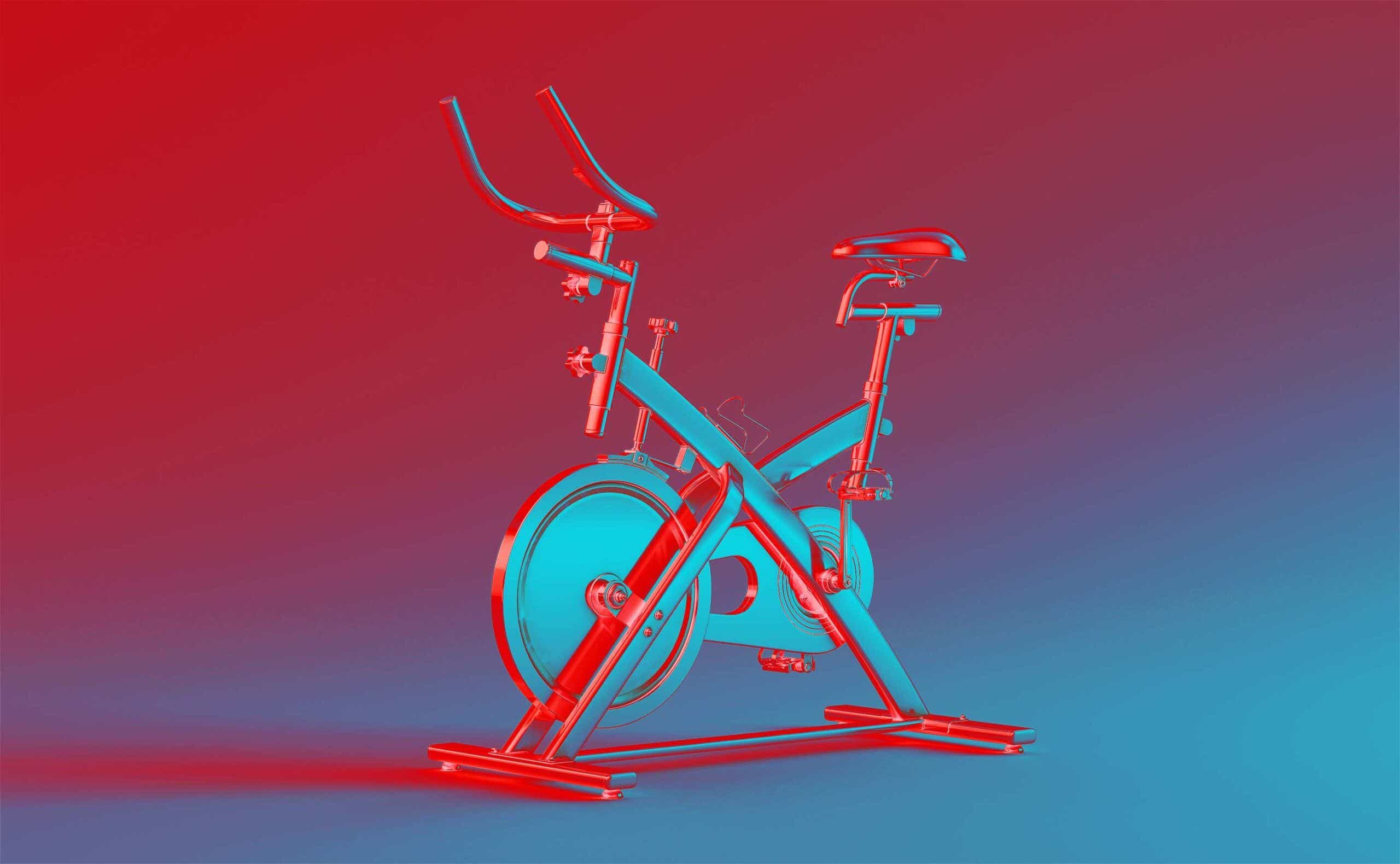Everyone's favorite exercise bike is facing an uphill battle with its public image over the last few weeks, thanks to some high-profile (and fictional) cardiac events. Here's what you should know about the Peloton pandemonium — and a doctor's advice to make sure you're pushing your heart hard enough to stay in shape, but not so hard that you become another stationary bike sob story.
So, what's up with Peloton lately?
It all started with Mr. Big. In the premiere episode of HBO Max's Sex and the City reboot, And Just Like That..., Carrie Bradshaw returns to her palatial penthouse to find her husband suffering through his final moments after having a heart attack on his Peloton. The scene was so shocking that our very own Katie called up the head of clinical cardiology at Mt. Sinai to tell us what Carrie should have done to try and save Big's life.
But it didn't stop there. This weekend, a Peloton nearly brought down another character in the season premiere of Billions. Mike "Wags" Wagner, played by David Costabile, suffers minor cardiac arrest while on the bike, and though the character survived the incident, he did make reference to the death that started it all. "I'm not going out like Mr. Big," Wags says in the episode.
What is Peloton saying about all this?
The company's stock dropped 12 percent after the And Just Like That... episode. Peloton made a statement saying Mr. Big's "extravagant lifestyle" (including cocktails, cigars, and steaks) was more responsible for his demise than his mode of exercise.
"These lifestyle choices and perhaps even his family history, which often is a significant factor, were the likely cause of his death," a Peloton cardiologist said. "Riding his Peloton Bike may have even helped delay his cardiac event."
Peloton also got in on the joke by putting out an ad featuring Chris Noth himself, which it then pulled from the airwaves shortly thereafter when Noth was accused of sexual assault. (The storyline of Mr. Big's death has also taken on new meaning in light of the news, but that's another story.)
The Billions storyline prompted another response from Peloton, which definitely seems to be a little peeved about the bad PR lately.
"We get why these fictional TV shows would want to include a brand that people love to talk about," the company said. "But Showtime's use of Peloton's Bike+ and reference to a Peloton Instructor was not a brand, product, or instructor placement, and we did not agree for our brand and IP to be used on this show or provide any equipment. As referenced by the show itself, there are strong benefits of cardiovascular exercise to help people lead long, happy lives."
How can you protect yourself from heart attacks during your own rides?
These instances of Peloton-induced cardiac problems are, of course, scripted, and there's no indication that exercising with this kind of equipment is a danger to the life of an otherwise healthy and active person. But you can be smart about how hard you're pushing yourself during workouts.
Dr. Jesse Mills, director of the Men's Clinic at UCLA and author of A Field Guide to Men's Health, tells KCM that we should be aware of our "target heart rate."
"The reason that's so important is that for you to be able to have good cardiovascular fitness, you should be doing about 20 minutes a day of vigorous exercise. Vigorous means that your heart rate should be about 80 percent of your maximum, and that number gets lower as you get older," Dr. Mills says.
There's a pretty simple formula for calculating your target rate: First, subtract your age from 220. This will give you your maximum heart rate. Then, to calculate 80 percent of that maximum, multiply your answer by 0.8.
Dr. Mills is 51, so in his case, he'd subtract 51 from 220 to get a maximum heart rate of 169 beats per minute. Then, 169 multiplied by 0.8 gives him a target heart rate of around 135. "And I know, on my Peloton or whatever I'm on, when I'm in that zone, I'm doing good for my heart," he says.
He recommends investing in a heart monitor to help you check in with this measurement during exercise. But if you can't, another benchmark is that if you're working out until you're breathless enough that you're slightly challenged in finishing a sentence, you're probably at the right level of vigor.
"You have enough set points to know if you're working out too hard," Dr. Mills says. "If you're lightheaded, if you're short of breath, and certainly if you're developing any kind of chest pain, stop doing what you're doing. But otherwise, push it. I think in general, we tend to be too worried to push ourselves as we get older, and that actually underserves you."
The information provided on this site isn’t intended as medical advice, and shouldn’t replace professional medical treatment. Consult your doctor with any serious health concerns.









